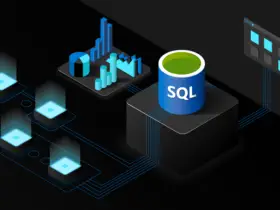

puredns is a subdomain bruteforcing tool that improves massdns to accurately handle wildcard subdomains and DNS poisoning. Easy to use and to integrate into workflows, it ensures the results obtained by public resolvers are clean.
massdns is an incredibly powerful DNS resolver used to perform bulk lookups. With the proper bandwidth and a good list of public resolvers, it can resolve millions of queries in just a few minutes.
Unfortunately, the results are only as good as the answers provided by the public resolvers used. They are often polluted by DNS poisoned entries. Wildcard subdomains are also a pain to deal with, as they add a lot of noise to the list of resolved subdomains.
puredns is a bash and python application that uses massdns to accurately perform DNS bruteforcing and mass resolving. It ensures the results obtained by public resolvers are clean and can work around DNS poisoning by validating the answers obtained using a list of trusted resolvers. It also handles wildcard subdomains correctly through its companion Python script, wildcarder.
Think this is useful? ![]() Star us on GitHub — it helps!
Star us on GitHub — it helps!
Features
- Accurately resolves thousands of DNS queries per second using massdns and a list of public DNS resolvers
- Supports DNS bruteforcing using a wordlist and a root domain
- Cleans wildcard root subdomains with a minimal number of queries
- Validates that the results are free of DNS poisoning by running against a list of known, trustable resolvers
- Saves list of valid subdomains, wildcard root domains and answers, and clean massdns output containing only the valid entries
- Comes with a massive list of tested public resolvers from public-dns.info
How it works

In the image above, you can see puredns in action against the domain store.yahoo.com using a small wordlist of the 100k most common subdomains. This is happening in real time.
As part of its workflow, puredns perfoms four steps automatically:
1. Preparation and sanitization of domains to resolve
When in resolve mode, puredns expects a list of domains to resolve.
When in bruteforce mode, puredns creates the list of domains to resolve from the domain provided and a wordlist.
In both cases, the list of domains is sanitized. Only entries containing valid characters that can be found in a domain name are kept (essentially [a-zA-Z0-9\.\-]).
This step can be skipped using the --skip-sanitize flag.
2. Dumb mass resolve
puredns will then perform a mass resolve of all the domains in the list using massdns. It saves the results to a temporary file.
The results are usually polluted: some public resolvers will have sent poisoned replies, and wildcard subdomains can also quickly inflate the results.
This step is mandatory and cannot be skipped.
3. Wildcard detection
The application then uses its companion wildcarder Python script to detect and extract all the wildcard root subdomains from the massdns results file.
wildcarder will reuse the massdns output to minimize the number of queries it needs to perform. It is quite common for wildcarder to figure out the structure of wildcard subdomains with as few as 5-10 DNS queries when it has a massdns file to prime its cache.
puredns will then clean up all the wildcard subdomains from its results and keep only the wildcard root subdomains that resolve correctly.
This step can be skipped using the --skip-wildcard-check flag.
4. Validation
To protect against DNS poisoning, puredns uses massdns one last time to validate the remaining results using a list of trusted DNS resolvers.
This step is done at a slower pace as not to hit any rate limiting on the trusted resolvers. We try to limit the rate to 10 queries per second per resolver.
This step can be skipped using the --skip-validation flag.
Once this is done, the resulting files are clean of wildcard subdomains and DNS poisoned answers.
Only the resulting valid domains are sent to stdout so that you can pipe the results to other programs. The rest of the information output by puredns is sent to stderr.
Installation
puredns requires massdns to be installed on the host machine. Follow the instructions to compile massdns on your system.
If the path to the massdns binary is present in the PATH environment variable, puredns will work out of the box. On most systems, a good place to copy the massdns executable is /usr/local/bin.
Otherwise, you will need to specify the path to the massdns binary file using the --bin command line argument.
The script also requires a few other dependencies:
- python3
- python3-dnspython
- pv
To ensure the dependencies are installed on Ubuntu, you can use the following command line:
sudo apt install -y python3 python3-dnspython pv
Once the dependencies are installed, simply clone the repository to start using puredns:
git clone https://github.com/d3mondev/puredns.git
Usage
puredns
Command line arguments
puredns v1.0
Use massdns to accurately resolve a large amount of subdomains and extract wildcard domains.
Usage:
puredns [--skip-validation] [--skip-wildcard-check] [--write-massdns <filename>]
[--write-wildcards <filename>] [--write-wildcard-answers <filename>] [--help] <command> <args>
Example:
puredns [args] resolve domains.txt
puredns [args] bruteforce wordlist.txt domain.com
Commands:
resolve <filename> Resolve a list of domains
bruteforce <wordlist> <domain> Perform subdomain bruteforcing on a domain using a wordlist
Optional:
-b, --bin <path> Path to massdns binary file
-r, --resolvers <filename> Text file containing resolvers
-rt, --resolvers-trusted <filename> Text file containing trusted resolvers
-l, --limit Limit queries per second for public resolvers
(default: unlimited)
-lt, --limit-trusted Limit queries per second for trusted resolvers
(default: 10 * number of trusted resolvers)
-ss, --skip-sanitize Do not sanitize the list of domains to test
By default, domains are set to lowercase and
only valid characters are kept
-sw, --skip-wildcard-check Do no perform wildcard detection and filtering
-sv, --skip-validation Do not validate massdns results using trusted resolvers
-w, --write <filename> Write valid domains to a file
-wm, --write-massdns <filename> Write massdns results to a file
-ww, --write-wildcards <filename> Write wildcard root subdomains to a file
-wa, --write-answers <filename> Write wildcard DNS answers to a file
-h, --help
wildcarder
wildcarder can extract wildcard root subdomains and their DNS answers from a list of domains.
It is used as part of the puredns workflow, but can also be used by itself.
Command line arguments
usage: wildcarder [-h] [--load-massdns-cache massdns.txt]
[--write-domains domains.txt] [--write-answers answers.txt]
[--version]
file
Find wildcards from a list of subdomains, optionally loading a massdns simple
text output file to reduce number of DNS queries.
positional arguments:
file file containing list of subdomains
optional arguments:
-h, --help show this help message and exit
--load-massdns-cache massdns.txt
load a DNS cache from a massdns output file (-oS)
--write-domains domains.txt
write wildcard domains to file
--write-answers answers.txt
write wildcard DNS answers to file
--version show program's version number and exit
Examples

Subdomain bruteforcing
Using the included list of resolvers, puredns can bruteforce a massive list of subdomains using a wordlist named all.txt:
puredns bruteforce all.txt domain.com
Resolving a list of domains
You can also resolve a list of domains contained in a text file (one per line).
puredns resolve domains.txt
Saving the results to files
You can save the following information to files to reuse it in your workflows:
- domains: clean list of domains that resolve correctly
- wildcard root domains: List of the wildcard root domains found (ie. *.store.yahoo.com)
- wildcard answers: list of DNS answers given by the wildcard subdomains (A and CNAME records)
- massdns results file (simple text output): can be used as a reference and to extract A and CNAME records.
puredns resolve domains.txt --write valid_domains.txt \
--write-wildcard-answers wildcard_answers.txt \
--write-wildcards wildcards.txt \
--write-massdns massdns.txt
Using custom resolvers
You can use a custom list of resolvers with puredns. Simply pass the -r argument to the script.
You can also specify a list of custom trusted resolvers with the -rt argument.
puredns resolve domains.txt -r resolvers.txt -rt trusted.txt
Resources
shuffleDNS is a good alternative written in go that handles wildcard subdomains using a different algorithm.
public-dns.info continuously updates a list of public and free DNS resolvers.
DNS Validator can be used to curate your own list of public DNS resolvers.
all.txt wordlist Jhaddix’s iconic all.txt wordlist commonly used for subdomain enumeration.
Author
I’m d3mondev, a coder and security enthusiast. Follow me on twitter!
Disclaimer & License
The resolvers included in this repository are present for reference only. The author is not responsible for any misuse of the resolvers in that list. It is the user’s responsibility to curate a list of resolvers you are authorized to use.
Usage of this program for attacking targets without consent is illegal. It is the user’s responsibility to obey all applicable laws. The developer assumes no liability and is not responsible for any misuse or damage cause by this program. Please use responsibly.
The material contained in this repository is licensed under GNU GPLv3.
























Leave a Reply